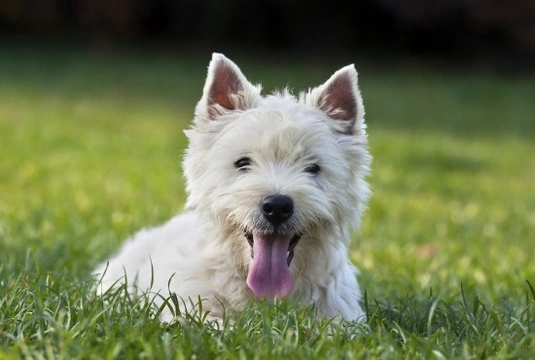
How to tell if your dog is happy
A wagging tail and of course, exuberant play are both signs of a happy dog, but as well as being able to tell that your dog is happy at any given moment, are you also confident that your dog is happy in general, and feels comfortable and secure in their life as a whole? We all try of course to do the best for our dogs, but it can be easy to miss some of the signs and signals of happiness or unhappiness in the general scheme of things, and these are things that we as dog owners should constantly be reviewing with the best interests of our dogs in mind.
Read on to learn more about how to tell if your dog is happy, and signs that they might not be!
Good health
A dog that is under the weather or not in the peak of health is exponentially more likely to be unhappy, and it is not always straightforward to tell if there is something amiss with your dog! If your dog seems flat, listless or disinterested in life in general, there might be an underlying health problem responsible for this, which you will need to get checked out.
Annual veterinary checks and keeping your dog’s vaccinations up to date in order to ward off preventable illnesses are all part of raising a happy dog or puppy.
Temperament
Some dogs are simply more cheerful than others, and you should not take shyness or wariness around strangers as signs that your dog is automatically unhappy. But as a general rule, your dog should be even tempered, predictable, and not prone to snapping or being grumpy! If your dog has a tendency to be moody, the reasons behind this can be complex, and include their past handling, something being wrong, inappropriate training, or a battle for dominance. Your dog’s temperament over all is one of the man indicators of their happiness and mood in general!
Bonding
Your dog should have formed a bond with you and your immediate family, any other dogs within the home, and potentially, any other pets and regular visitors too. Dogs are social animals that form packs with their human family and friends, and need to be able to form and maintain appropriate bonds in order to be at their best.
Happy behaviour
Does your dog greet you happily, like to play, enjoy spending time cuddled up with you, and generally enjoy games, walkies and other activities? If your dog has a constantly wagging tail and open, happy demeanour, the chances are that they are generally happy most of the time!
Having all of their needs met
In order to be happy and feel secure in their lives, your dog must of course have all of their basic and essential needs met. This means that they must be fed adequately on a good quality complete food and not have to worry about where their next meal is coming from, but there are many other elements to it as well!
Your dog must be exercised adequately in line with the requirements of their breed and type and their age, and should have plenty of toys and other sources of entertainment to keep them occupied as well. They should also have ample opportunity to go to the toilet when they need to, spend plenty of time around their family, and not be left alone for long periods of time. Socialisation with other dogs is also important, and ideally, your dog should be able to meet and play with other dogs on a daily basis.
Routine
Routine is important to keep dogs on an even keel and not having to worry about things, so try to keep their feeding times, walks and the other core aspects of their lives to a set routine, and do not make changes to their routine unless this is absolutely necessary. A lack of routine and uncertainty about the day-to-day schedule of their lives will potentially lead to stress and unhappiness in the dog.
Stress and change
Change and upheaval can prove to be a source of stress to your dog, and stress, of course, leads to unhappiness. Even minor changes within the household, such as a change in the times that the family comes and goes or goes about their regular routine can be stressful for dogs, so try to make any necessary changes gradually, and with your dog’s wellbeing in mind.
If your dog is stressed, they might begin to act out in any manner of ways, including barking and whining, becoming destructive, or toileting in inappropriate places. Any of these behaviours might be a sign of stress or uncertainty in the dog, so before you punish them for their behaviour, try to get to the root cause of it and see if something that you are doing is leading to your dog’s change in demeanour.



